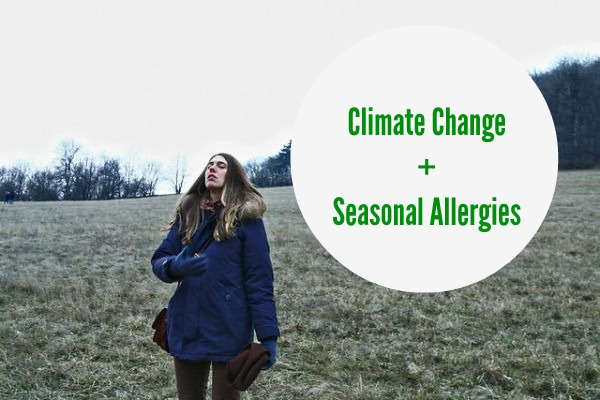
Need another reason to go enviro-friendly? How about helping reduce allergy symptoms?
It seems almost everyone has seasonal allergies these days, even those of us who never suffered from them as kids. People who’ve had allergy symptoms most of their lives are reporting an increase in the severity of their symptoms these days.
Studies show that climate change could have something to do with this increase in allergic symptoms, like runny nose, stuffiness, sneezing, and nasal congestion. Warmer than average temps mean longer seasons, with spring beginning earlier and fall lasting a few weeks later. This causes longer growing seasons, so plants like ragweed produce more pollen than usual.
An increase in carbon dioxide (up 10% between 1990 and 2011, via EPA), from car emissions and industrial manufacturing, causes an increase in plant growth and pollen production. Researchers also believe this pollen is now stickier and more potent than ever. I know our symptoms here begin as early as March.
If you are popping allergy meds daily, try these all natural solutions to reducing your symptoms:
Apple Cider Vinegar. Becky just talked about the diy beauty advantages of this stuff yesterday, and it may also be helpful to allergy sufferers. Some report a decrease in nasal discharge after drinking a glass of water with a sploosh of ACV added. Worth a shot.
Local honey. It is believed that honey produced from the region you live in could help with allergies. Consuming local honey, that contains the same allergens causing your symptoms, could be beneficial. If you aren’t vegan, try a teaspoonful daily to see if you get results.
Green tea. Oh yes, green tea not only detoxes the system, preventing sun damage and premature aging, and helps fight belly fat, it may mean milder allergy symptoms. Drink up.
Healthy fat. Omega-3 fatty acids are shown to cut down on mucous build up and nasal swelling. Foods rich in these fats? Salmon, eggs, walnuts, flax + chia seeds.
Synthetic free work out gear. If you plan to exercise outdoors, be sure to don natural fiber clothing. Synthetic fabrics, like nylon and polyester, tend to generate static with friction. This can cause more pollen to stick to clothing, which you then breathe in.
Rinse off (and out). Taking a shower after spending time outdoors this time of year reduces the amount of allergens you will inhale. And, of course, the good old neti pot (or bottle) is a must use this season.
[Image by yomo 13 at Flickr.com, cc]

